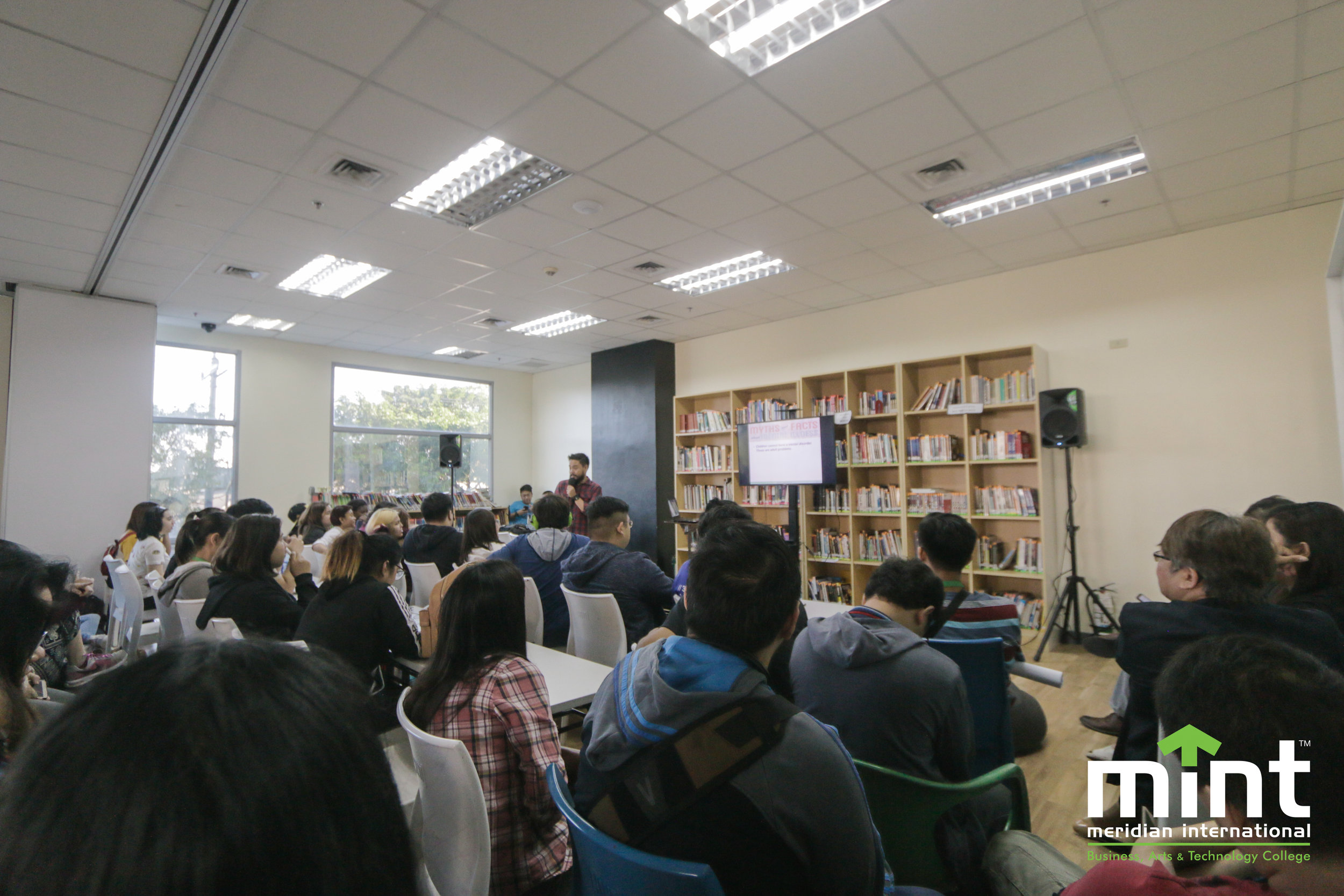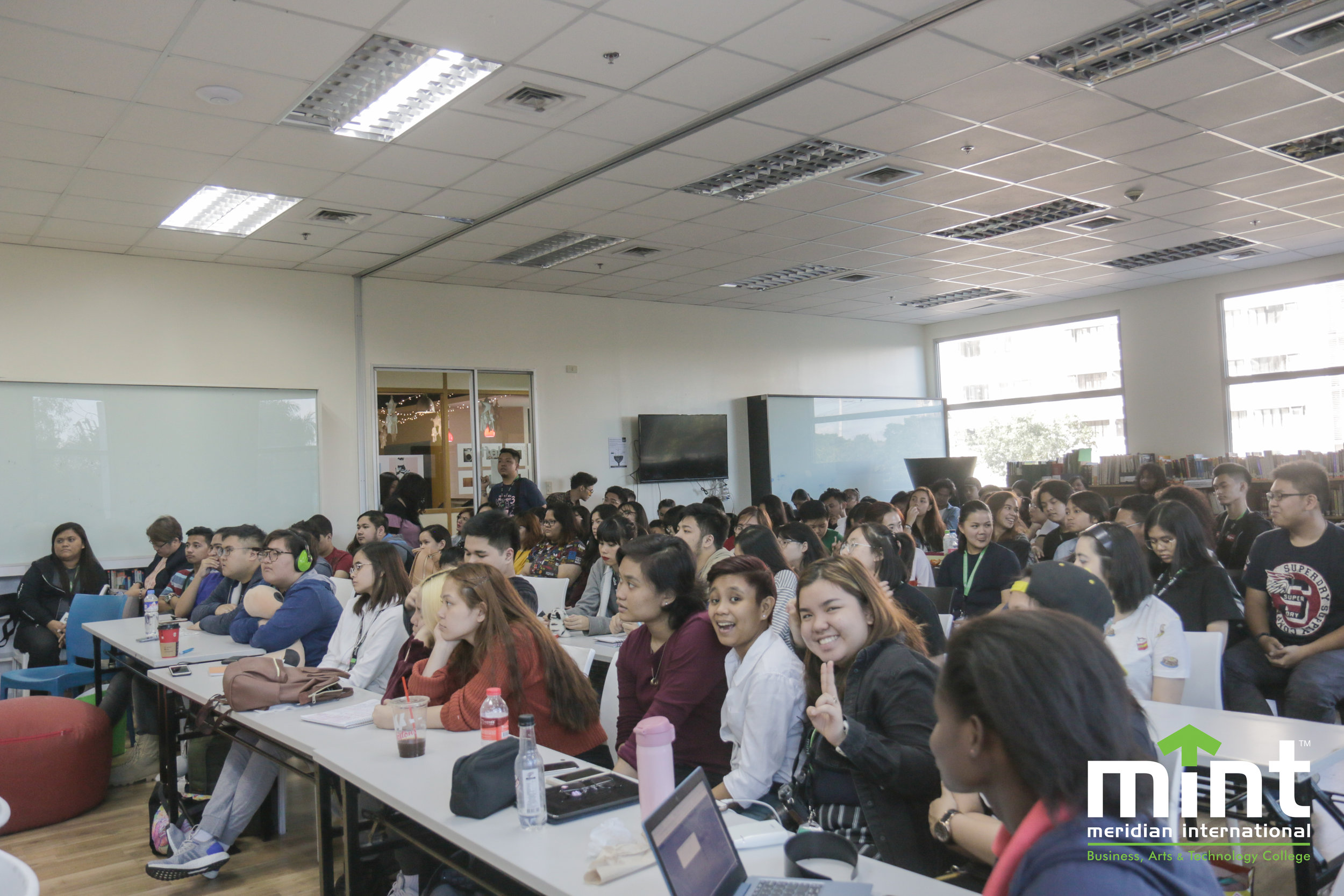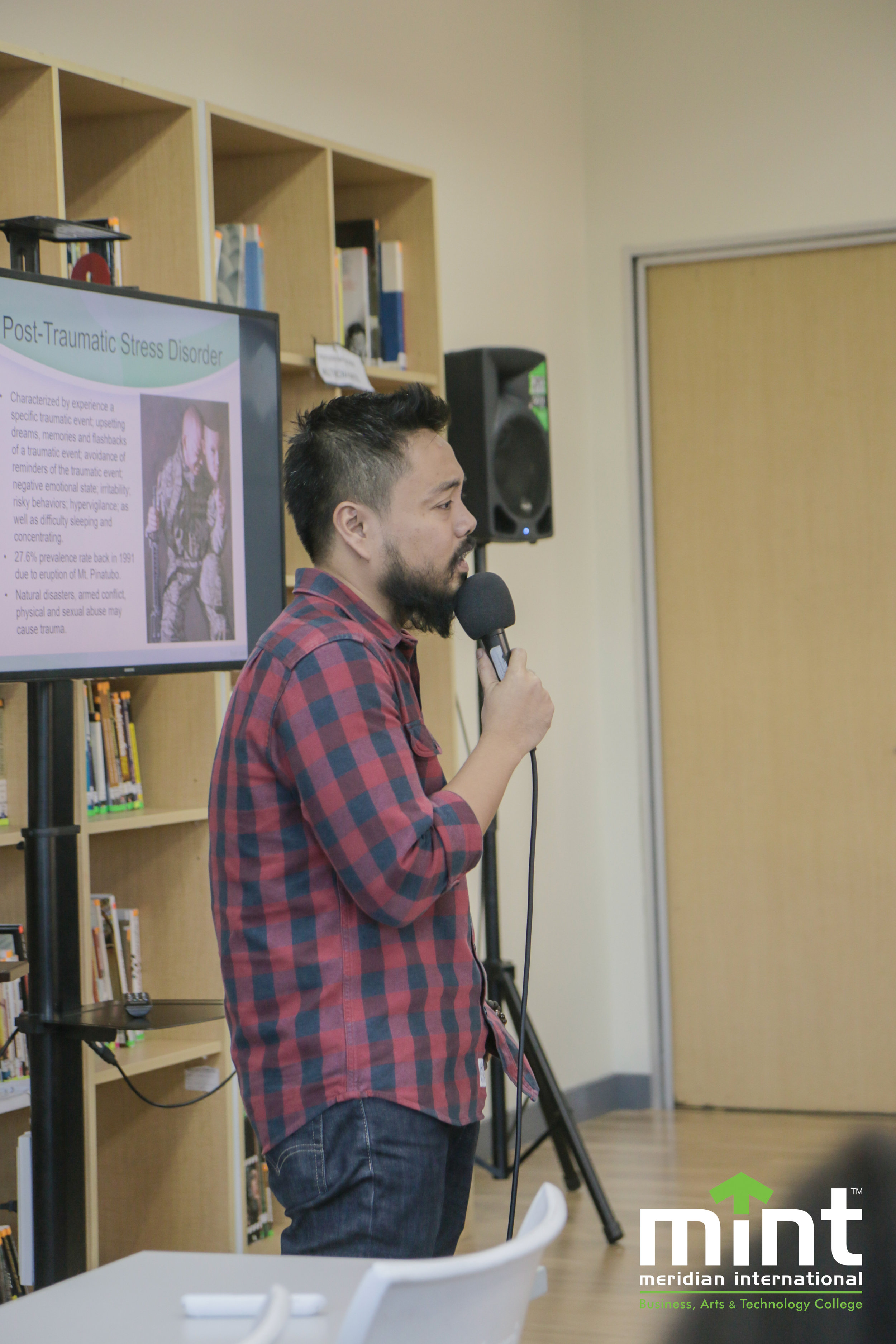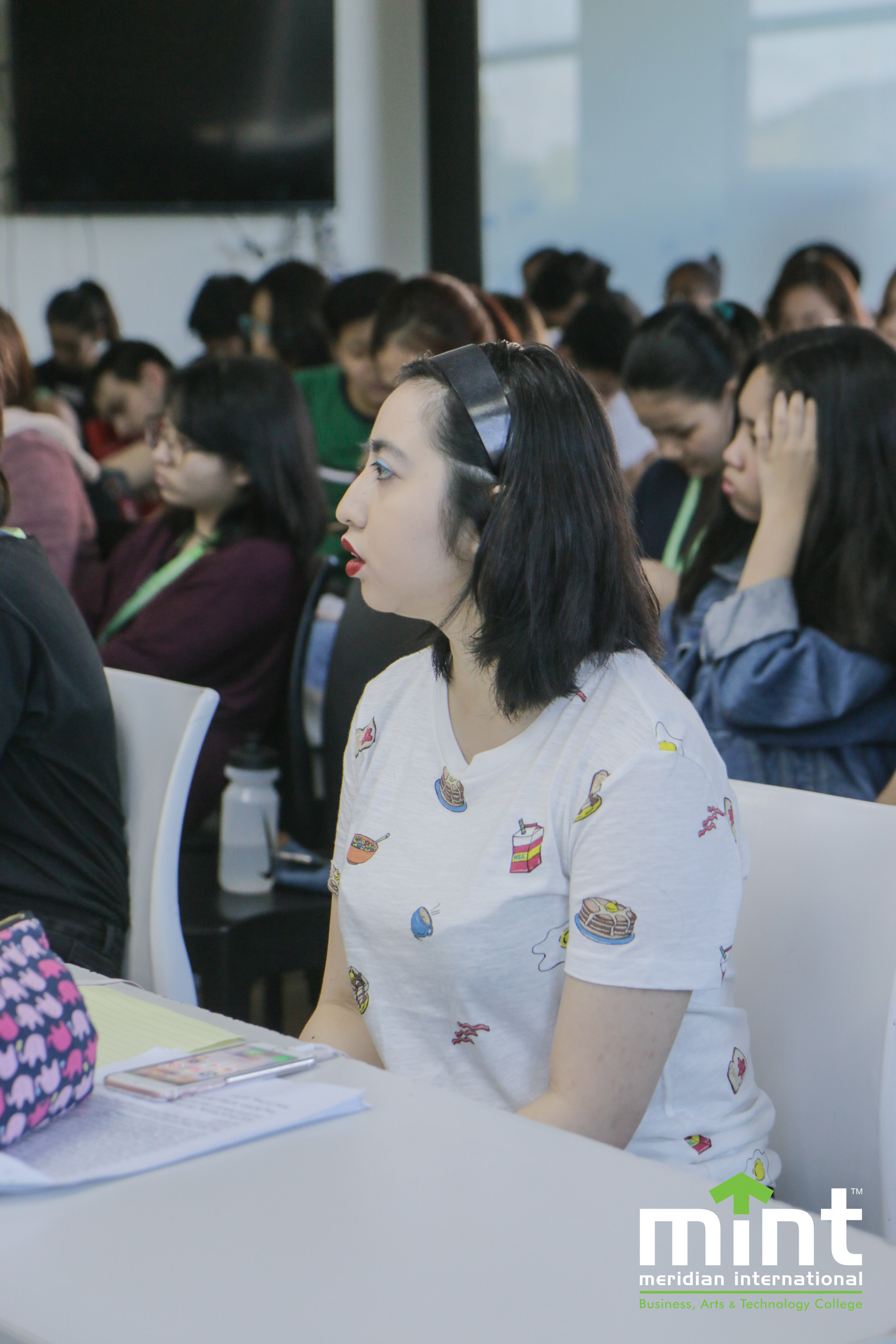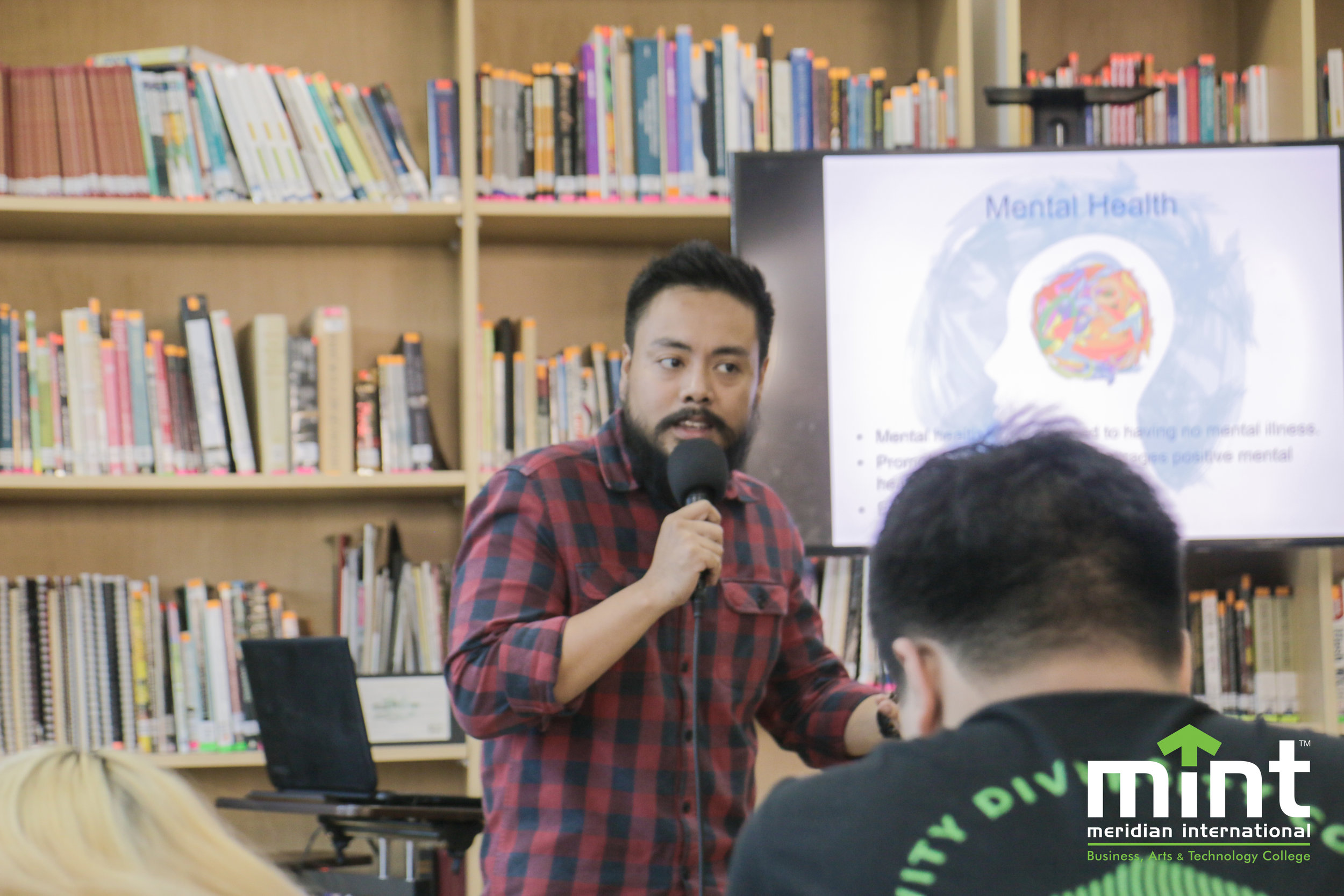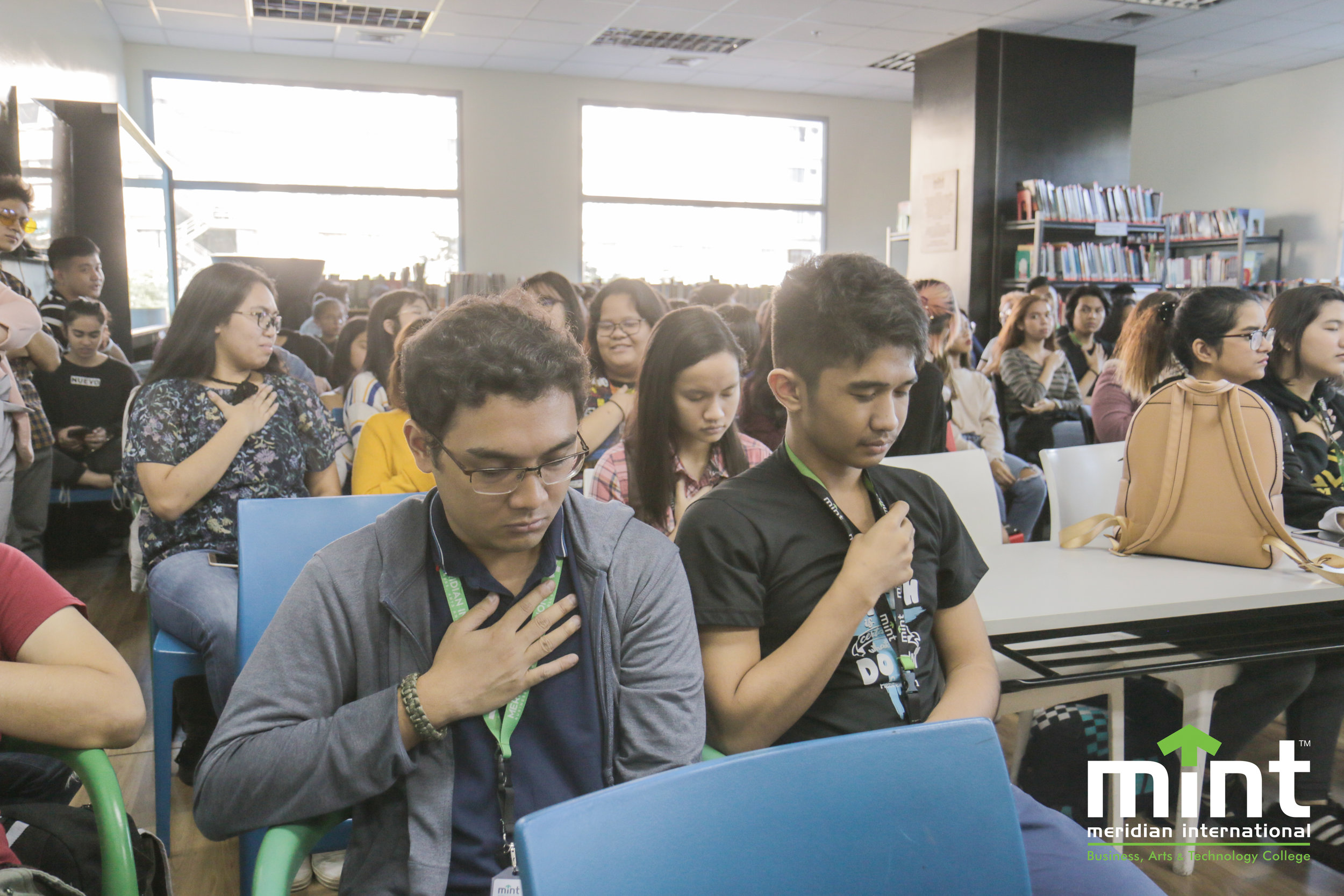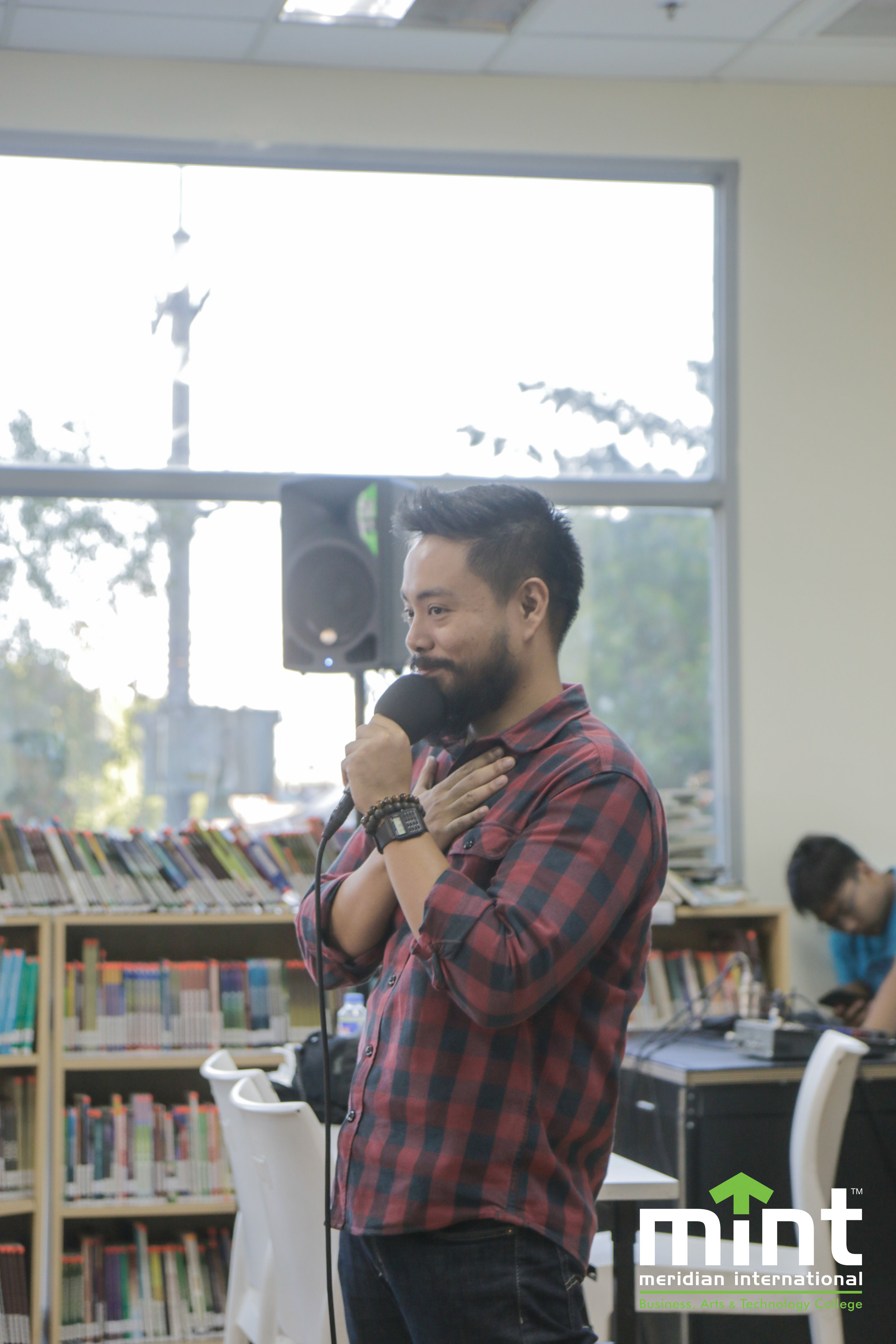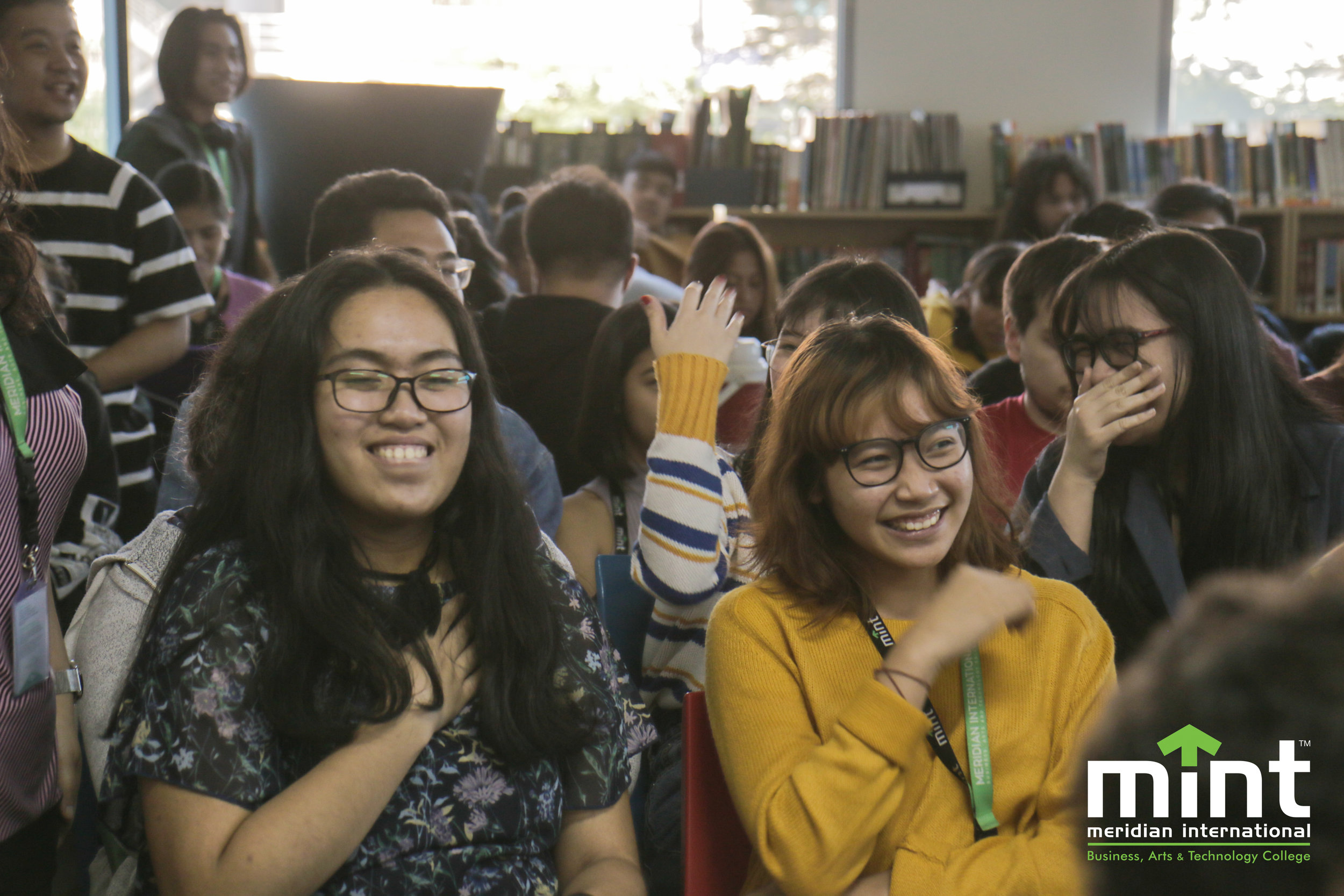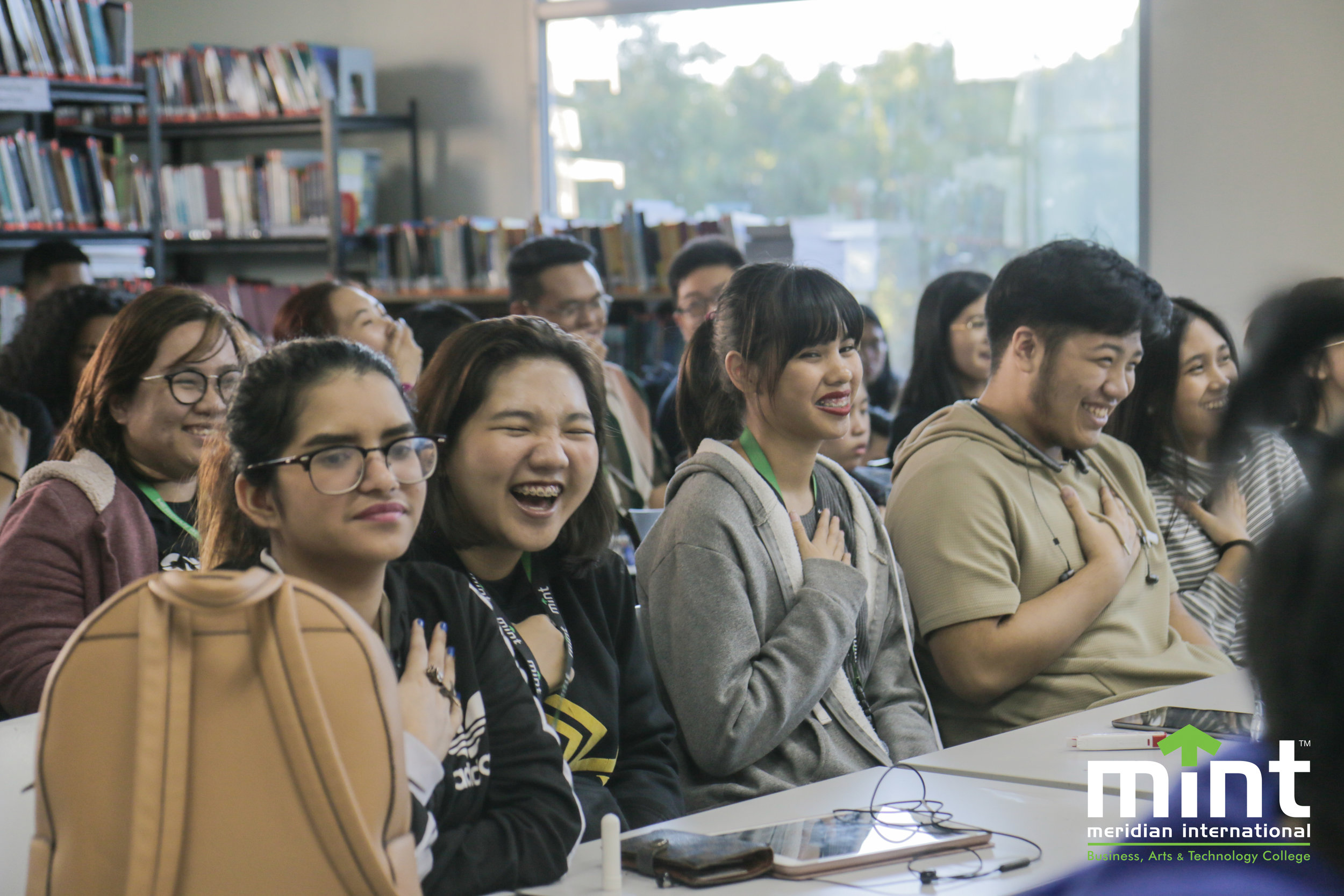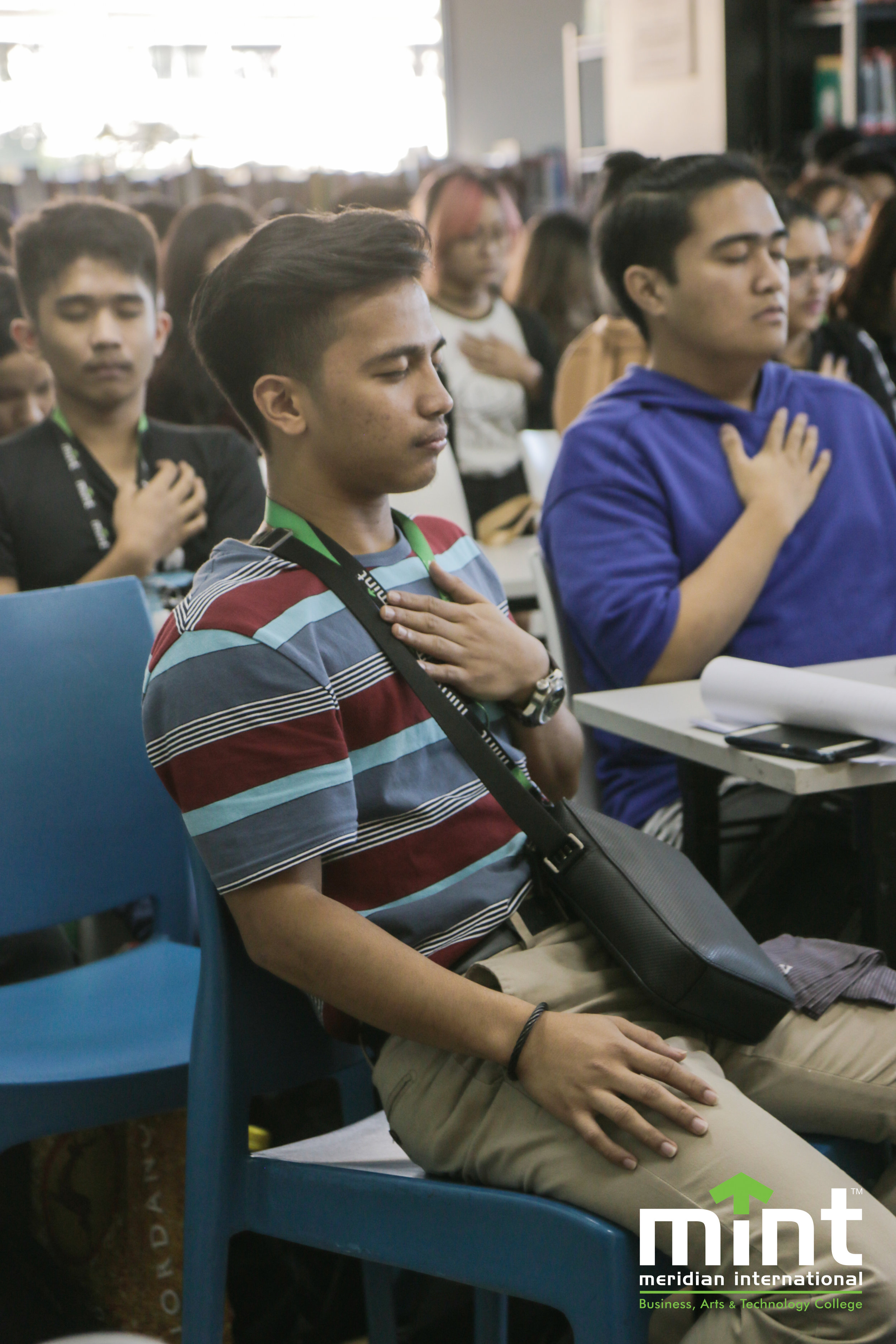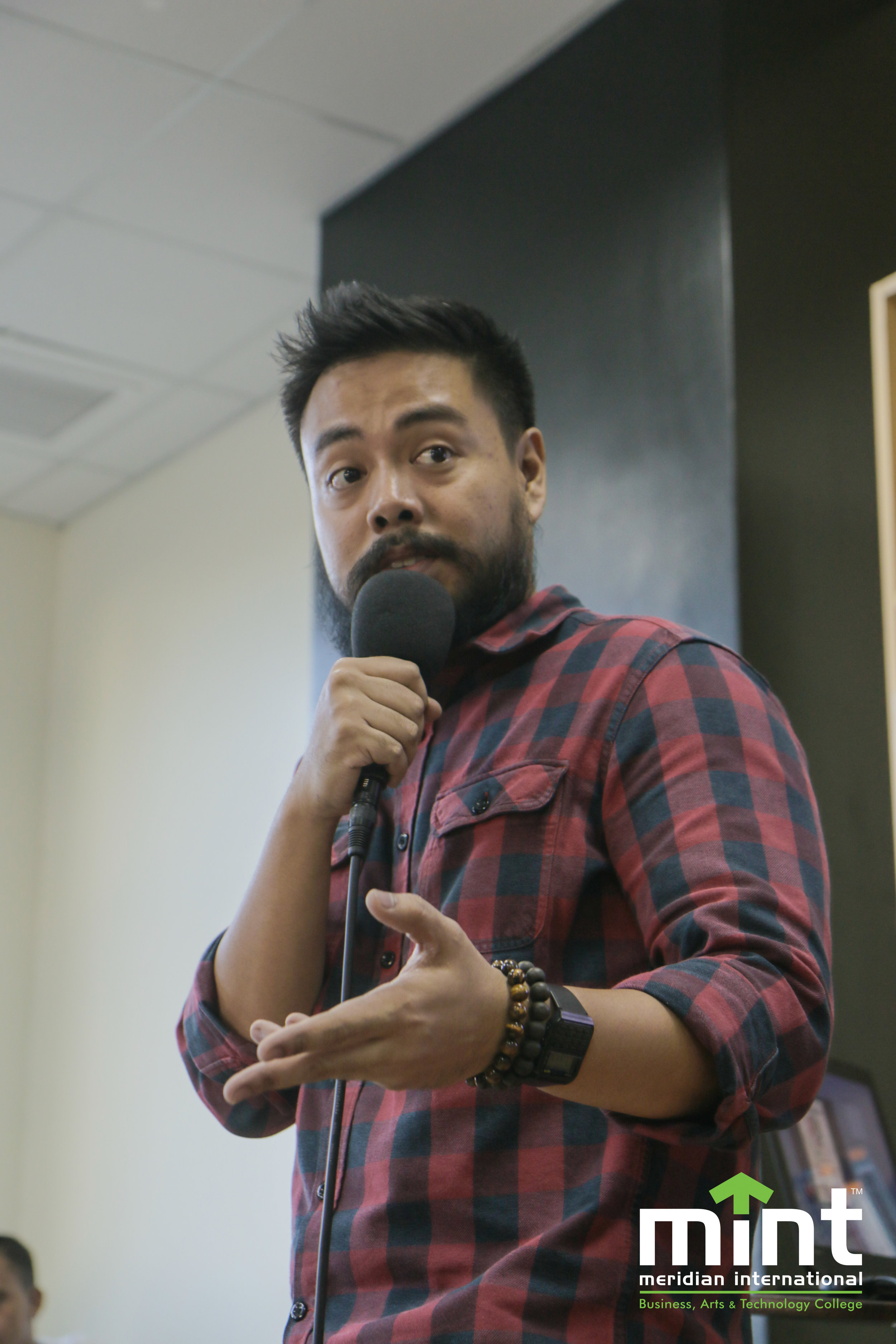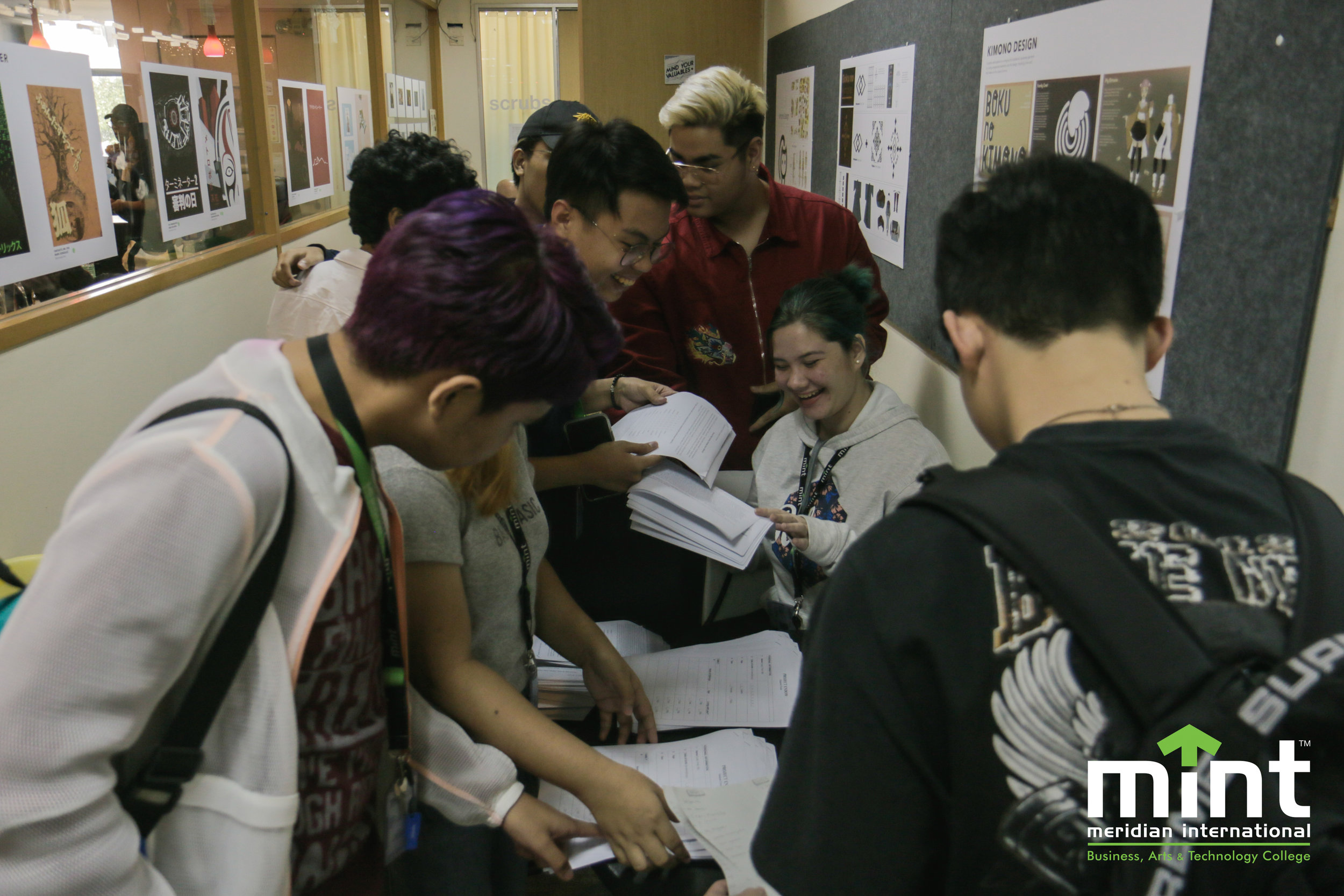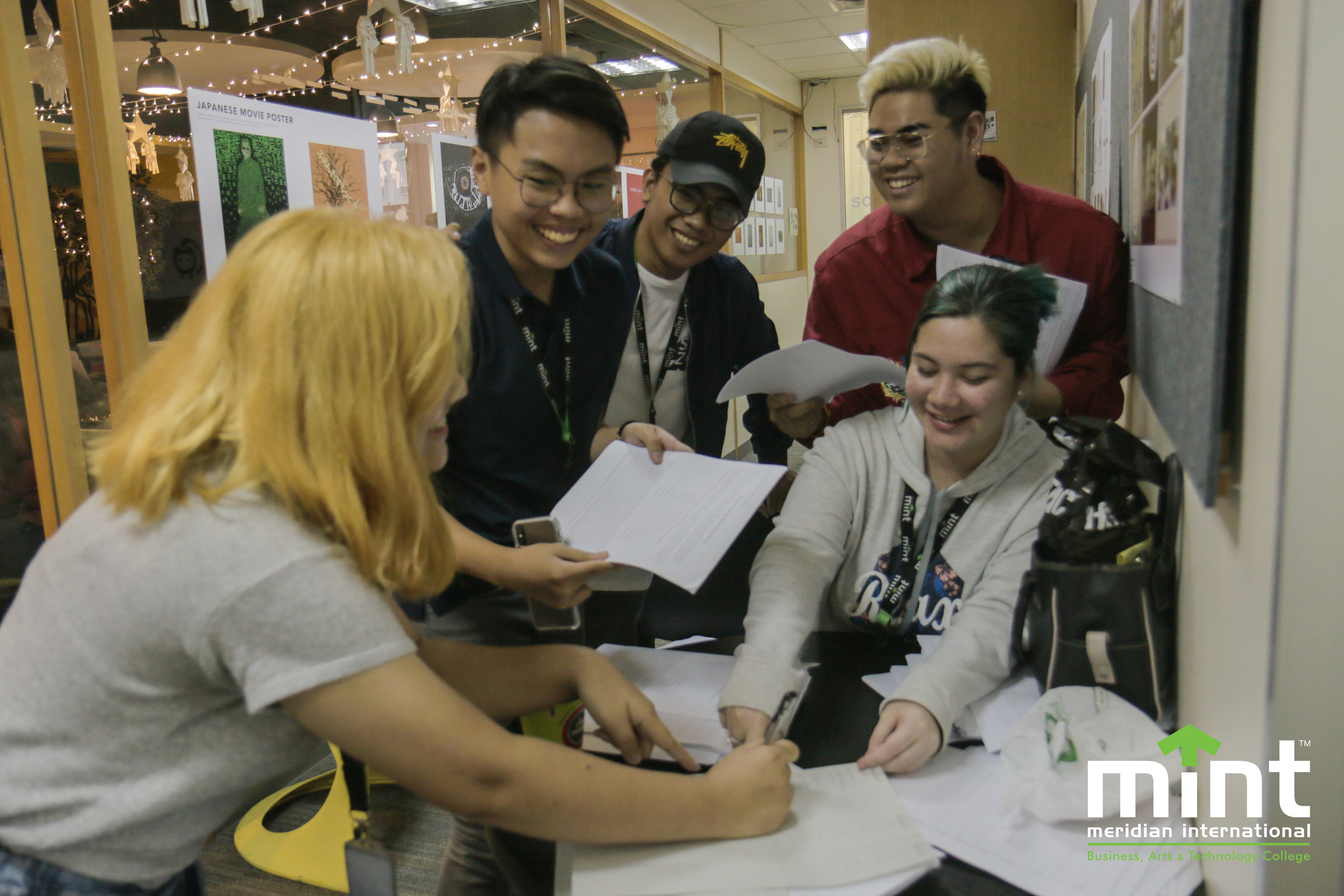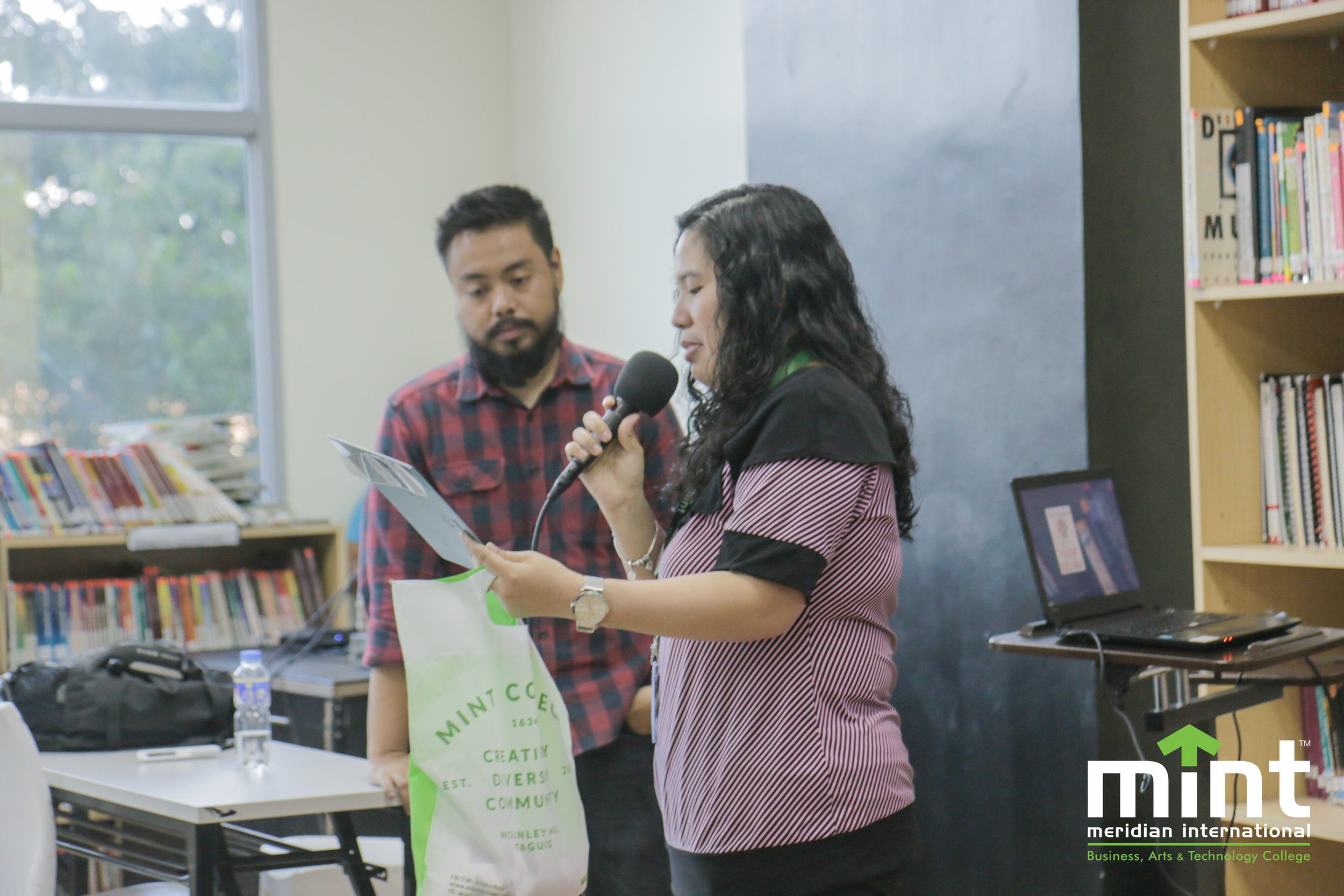Photos by Aireen Remoto.
Our mind is our own blueprint.
Each one of us has a unique mind map. This is why despite breakthroughs in Psychology, the only way to treat people with mental illness is to help them individually.
Last November 27, the MINT College Guidance and Counseling Office, together with Gray Matter Psychological Center, held a talk on mental wellness, dubbed “Mental Health 101: Ending the Stigma on Mental Health.”
The hall was filled with MINT students from both college and senior high school, and faculty members, learning and discussing the workings of the mind, its possible illnesses and how to deal with them.
Psychologist Sixtus Dane Ramos, MD led the forum on the common misconceptions about mental health, common illnesses, wrong practices in treatment, rights of patients, and coping with mental distress.
A graduate of AB Psychology from De Lasalle University, Dr. Ramos is an experienced doctor who handles cases like Substance Use Disorder and Post Traumatic Disorder.
For Ramos, his dream of becoming a mind doctor started way back in sixth grade. “I met a teacher who told us to draw a house, a tree, and a person and based from the drawings that we did, he was able to give a description of our personalities.”
He was amazed at how his teacher aptly described them because of their illustrations. It seemed like magic for the young Ramos. “In college, I learned that there is more than what meets the eye. I guess, [by that time, I knew that] I really just wanted to help people.”
Ramos explained that mental illnesses can be prevalent at any age and can affect everyone, no matter what age. It’s more than feeling sad or anxious, but a complex in the brain that prolong these negative feelings.
“It’s a process (on mental disorders). You have to accept that it won’t go away. People will relapse and will get depressed again,” he explains. But he added that mental issues, tedious as they are, can be treated.
“People being of sound mind, what we can do to help friends and family who might be mentally ill, is to first accept that we can’t save everyone, but we can be consistent with our support.”
He also highlighted what the school can do to preserve the students’ well-being. For him, it could be incorporating mental health awareness in school events, holding mental health forums and enhancing information sharing through social media campaigns, and room-to-room campaigns to be handled by the Guidance office.
“The best thing that you guys can do to begin is to educate everyone,” he stressed.
He reminded people to be respectful of one another. He believes that no one really knows the struggles of each person. In fostering respect, a community can create an environment for the mentally distressed to heal, and to not be ashamed to seek help. W
ANGEL FLORENCE PUA is a senior high school Film student in MINT College who is deeply in love with learning, creating and almost anything concerning the Arts. She is a passionate individual with a heart for God and determination to share her stories and those of others to the world.


